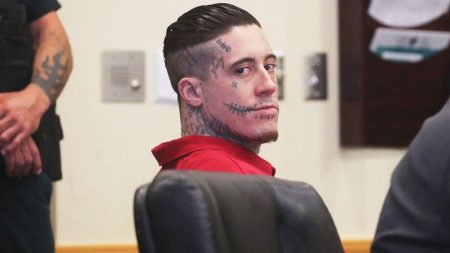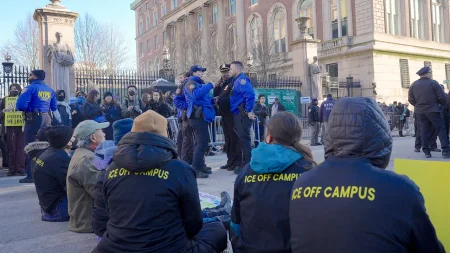Teen’s Controversial Sentencing Sparks Debate on Justice and Privilege
In a case that has ignited fierce debate in Stillwater, Oklahoma, 18-year-old Jesse Mack Butler will serve no prison time despite being convicted of serious crimes against two 16-year-old former girlfriends. Butler, who initially faced nearly 80 years in prison after being charged with ten felony counts including rape, attempted rape, sexual battery, and assault, received what many are calling a “sweetheart deal” that reduced his sentence to just one year of rehabilitation and community service. The stark contrast between the severity of the crimes and the leniency of the punishment has left many questioning whether justice was truly served, particularly given that Butler is the son of a prominent local sports coach.
The details of the case are deeply troubling. Court documents reveal that Butler’s attacks on the two high school students occurred in early 2024 when they were dating him. The first victim reported that during their three-month relationship, Butler repeatedly raped her and strangled her when she resisted his advances. Her injuries were so severe that she required surgery to repair damage to her neck, with doctors noting that had the strangulation continued for just 30 more seconds, she likely would have died. The second victim similarly reported being strangled until she lost consciousness, with police later discovering video evidence on Butler’s phone showing him choking the girl. These harrowing accounts paint a picture of systematic violence that left both young women physically and emotionally traumatized.
The legal journey that led to Butler’s light sentence has raised serious concerns about equity in the justice system. Initially charged as an adult at age 17, Butler pleaded not guilty to all charges. However, his defense team negotiated a deal with the district attorney’s office to change his status from adult to “youthful offender,” a classification that dramatically altered the potential consequences. After a judge approved this change, Butler switched his plea to no contest. Under Oklahoma law, this youth status effectively eliminated the possibility of prison time, reducing what could have been a 78-year sentence to rehabilitation services and community work. The dramatic reduction has left many wondering whether Butler’s family connections played a role in securing such favorable terms.
The mothers of both victims have spoken out forcefully against what they view as a grave injustice. “It’s appalling,” said one mother, comparing Butler’s punishment to what she received for breaking curfew as a teenager. “It’s a complete injustice to these girls and to future victims… Not only are you giving a slap in the face to these survivors, you are potentially putting other women at risk by not holding him accountable.” The other victim’s mother expressed similar outrage, calling the sentence a “joke” that fails to match the severity of Butler’s actions. She voiced particular concern about the message this sends: “I told the DA, I don’t want him to get away with this, because I cannot know that another mother is going to have to go through what I went through.” Their statements highlight not only the immediate harm done to their daughters but also the broader implications for community safety and faith in the legal system.
The public and political response to Butler’s sentencing has been swift and largely critical. Oklahoma State Representative Justin JJ Humphrey did not mince words when discussing the case, calling the court system “corrupt” and questioning how the judge could have reached such a decision. “If that doesn’t fire you up, there’s something wrong,” Humphrey stated, emphasizing that while appropriate laws exist on the books, they mean little if not properly enforced. His comments reflect a growing sentiment that Butler’s case represents not an isolated miscarriage of justice but rather a symptom of deeper problems within the criminal justice system, particularly regarding how it handles sexual assault cases and treats defendants from influential families.
As this story continues to unfold, it raises profound questions about how American society balances rehabilitation of young offenders with justice for victims of violent crime. The stark disconnect between the detailed accounts of strangulation, assault, and rape and the resulting sentence of community service highlights tensions around privilege, accountability, and the protection of vulnerable individuals. For the victims and their families, the pain is compounded by a sense that the system has failed them twice: first in preventing the crimes, and then in responding appropriately to them. Meanwhile, Butler will return to the community having faced minimal consequences for actions that medical professionals indicated could have been lethal. Whether this case will spark meaningful reform or fade into the background remains to be seen, but for now, it serves as a troubling reminder of the gap that can exist between justice as an ideal and justice as practiced.









